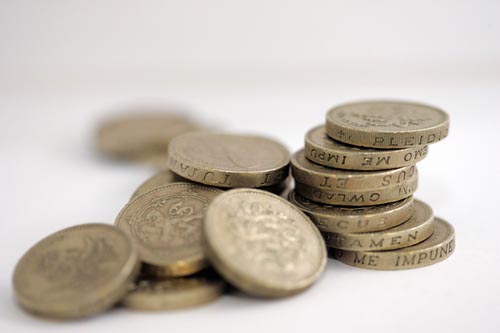THE Engineering and Physical Sciences Research Council (EPSRC) has awarded a grant of £1.3 million to the International Centre for Mathematical Sciences (ICMS), which next week marks its 21st anniversary.
Spanning four years in total, the funding will help the centre attract the world’s leading researchers in mathematics and related scientific fields to the UK and to showcase British research in the mathematical sciences.
The primary role of ICMS is to organise research workshops in mathematics and related areas of science. The events also involve representatives from other sciences, commerce and industry who depend upon mathematics to solve a huge range of problems.
Professor David Delpy, Chief Executive of EPSRC said, “The grant will introduce young researchers to senior figures from the UK and overseas and offer crucial training opportunities. It will also help the centre to communicate new ideas and techniques to workshop participants.”
Professor Keith Ball, Scientific Director of ICMS said: “The EPSRC grant will help to nurture the next generation of mathematical scientists by encouraging the participation of young researchers in ICMS events, and to address the gender gap in mathematics by encouraging the participation of women. One of our aims is to coordinate workshops that involve scientists working in several different areas so as to enable the cross-fertilisation of ideas from one area to another.”
In the two decades since it was founded, the centre has established a superb global reputation for hosting research events at the highest scientific level on the most important and innovative topics in the mathematical sciences.
In a typical year the Edinburgh-based ICMS attracts around 500 of the world’s most talented mathematicians and other scientists to its workshops. In the past three years, some 50 of the world’s largest companies covering healthcare, the oil industry, the financial industry, defence, engine manufacture and computing have sent representatives to ICMS meetings.
ICMS has a dedicated Knowledge Transfer (KT) officer whose job is to identify potential beneficiaries within industry, commerce and the public sector, and to involve them in the centre’s activities.
Among the ICMS meetings scheduled for the coming year which are likely to have significant commercial applications are:
- Scale Transitions in Chemistry and Biology
- Markov-Chain Monte-Carlo Methods in Statistics
- Topological Data Analysis
- Soap Bubbles and Foams
The value of these events to commercial and public participants is very direct. Research workshops alert the scientists in companies and government to the latest developments in their area; in turn, the scientists build mathematical models into their products. There is also considerable indirect value to younger participants, many of whom will move from academia into industry and for whom the events serve as springboards and opportunities for networking.


